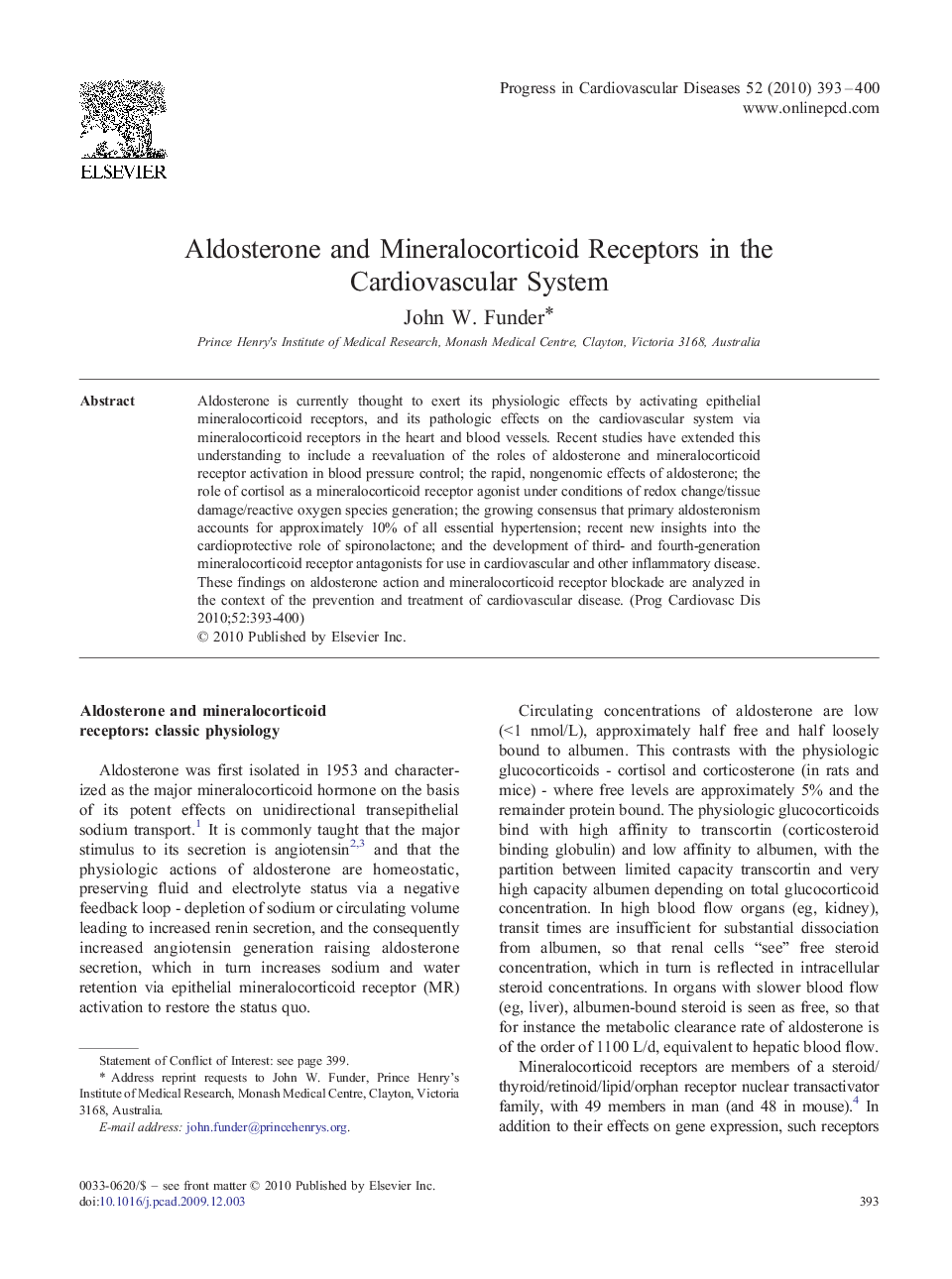| Article ID | Journal | Published Year | Pages | File Type |
|---|---|---|---|---|
| 3006723 | Progress in Cardiovascular Diseases | 2010 | 8 Pages |
Aldosterone is currently thought to exert its physiologic effects by activating epithelial mineralocorticoid receptors, and its pathologic effects on the cardiovascular system via mineralocorticoid receptors in the heart and blood vessels. Recent studies have extended this understanding to include a reevaluation of the roles of aldosterone and mineralocorticoid receptor activation in blood pressure control; the rapid, nongenomic effects of aldosterone; the role of cortisol as a mineralocorticoid receptor agonist under conditions of redox change/tissue damage/reactive oxygen species generation; the growing consensus that primary aldosteronism accounts for approximately 10% of all essential hypertension; recent new insights into the cardioprotective role of spironolactone; and the development of third- and fourth-generation mineralocorticoid receptor antagonists for use in cardiovascular and other inflammatory disease. These findings on aldosterone action and mineralocorticoid receptor blockade are analyzed in the context of the prevention and treatment of cardiovascular disease.
